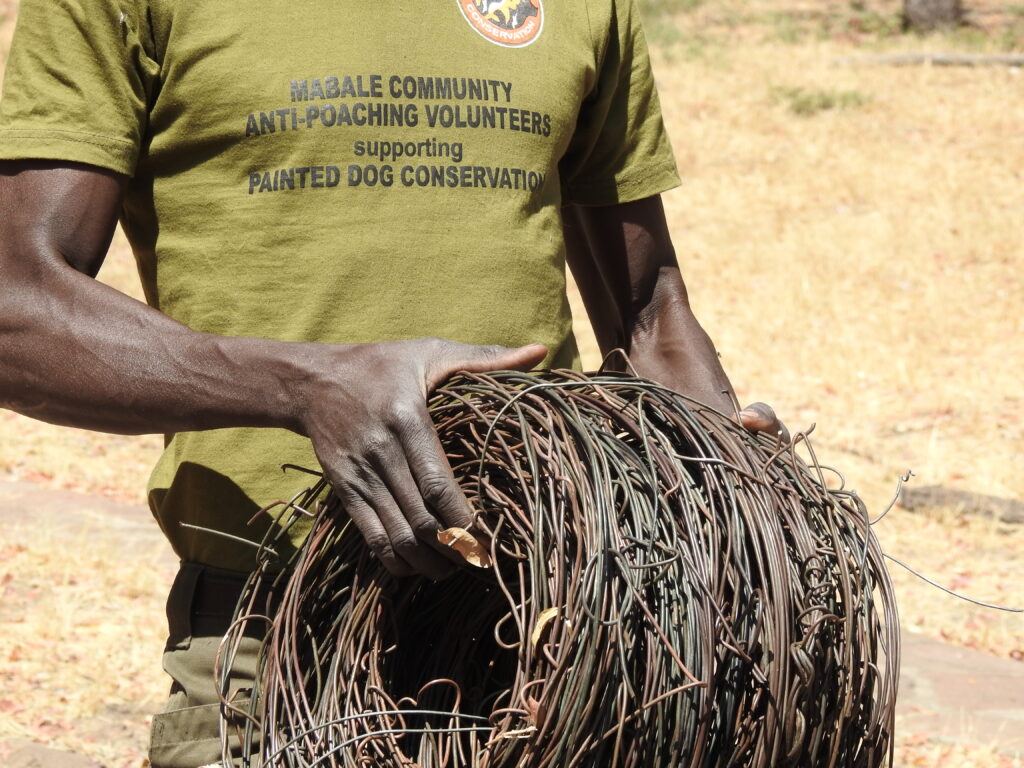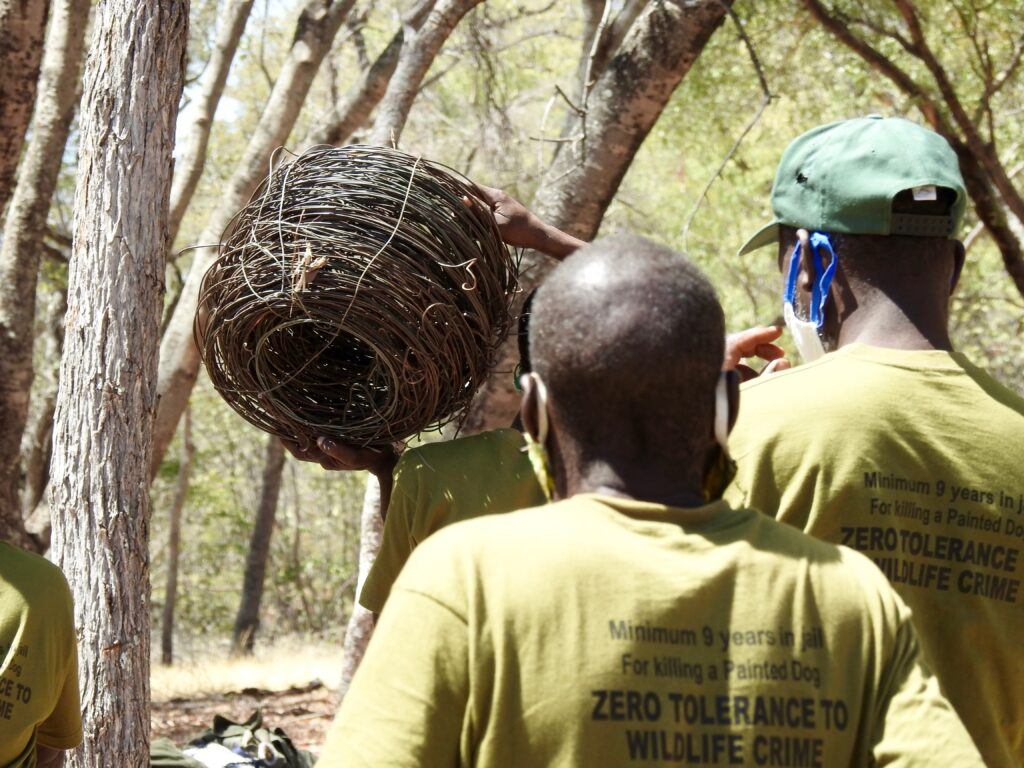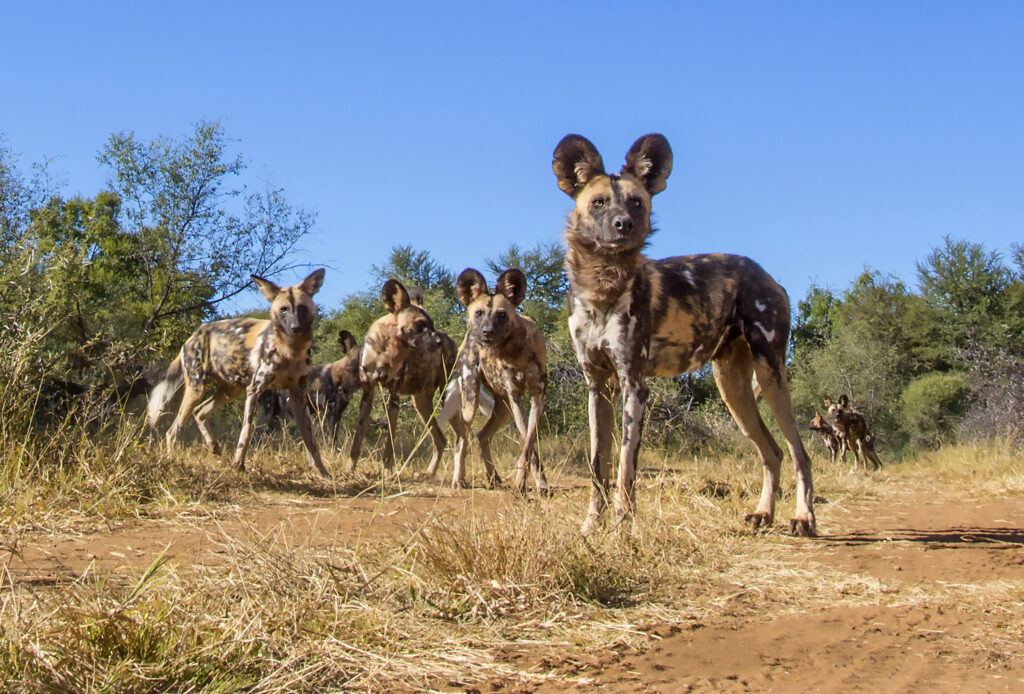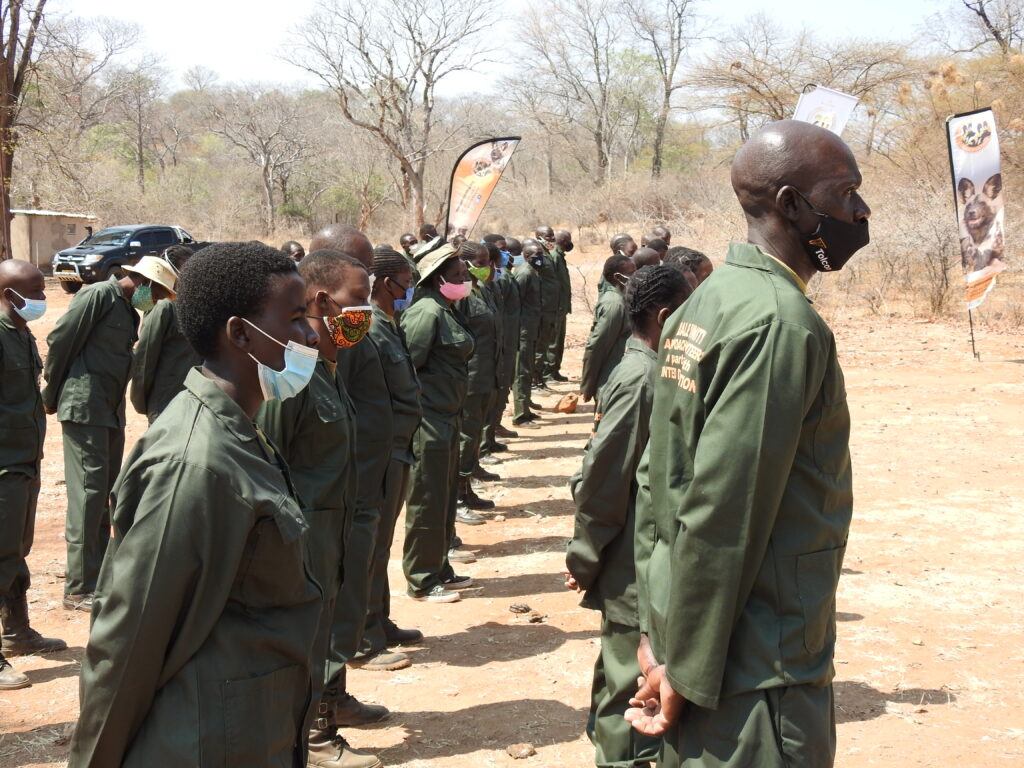The group moved steadily through the bush, their boots stamping the straw-colored dirt of Zimbabwe’s Hwange National Park. Slung over their shoulders were dark coils of wire snares, used by bushmeat poachers to catch animals in a deadly grip. But these were no poachers—they were the Mabale Community Anti-Poaching Volunteer Group. Enlisted by Painted Dog Conservation (PDC), this group protects painted dogs and other wildlife by removing treacherous poaching snares, and as this year’s operations came to a close, they were about to achieve a milestone.
Roughly 7,000 painted dogs are left in Africa, with 700 living in Zimbabwe and about 200 in Hwange National Park. Illegal bushmeat poaching is a constant threat in Hwange due to economic hardship on surrounding communities. Lockdowns and unemployment caused by COVID-19 added more pressure to these communities, thus increasing poaching. To protect the dogs, PDC deploys their Anti-Poaching Unit to patrol around Hwange daily. Since 2001, these scouts have removed over 30,000 wire snares from the park and helped curb poaching, but more patrols are always needed.
In 2015, a painted dog nicknamed “MK” was killed by a snare in the Mabale communal lands bordering Hwange. PDC brings economic, medical, and educational opportunities to this community, so the people there had a strong connection to painted dog conservation. Upset that a dog was killed on their land, the Mabale people decided to actively get involved in anti-poaching work. They organized into a group of 45 volunteers who began regularly patrolling the buffer zone between their land and Hwange. This year’s patrols lasted six months—twice as long as last year’s. They also added 40 new volunteers, and to further support PDC’s efforts, they patrolled other poaching hot spots. In total, the Mabale group completed 637 patrols and removed 1,173 wire snares this year, a new benchmark for the group that translates into countless painted dogs saved.
Extra boots on the ground expanded PDC’s reach and helped them achieve two goals simultaneously—protecting painted dogs and supporting local communities. The Mabale group received $30,000 from PDC this year in payment for their work. PDC also gave them PPE and camping gear to safely operate during the pandemic. While this compensation sends the message that aiding conservation pays, the Mabale volunteers were also motivated by their own respect for wildlife. Many of them first learned about painted dogs as children enrolled in PDC’s free Iganyana Children’s Bush Camp, where they visited the dogs at PDC’s rehabilitation facility. This compelled them to save painted dogs as adults, a testament to the impact of PDC’s programs on community attitude toward the species.
As Mabale volunteers removed another snare from the tangled foliage, they felt grateful for the family they had formed with each other and proud of the incredible work they have achieved. Poaching threats still remain in Hwange, so PDC is hopeful they can keep this group operating with additional funding. These volunteers demonstrate the importance of community involvement in conservation, saving painted dogs one snare at a time.
Support Painted Dog Conservation



